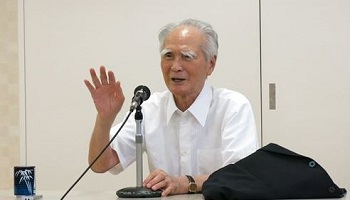
Tomiichi Murayama Net Worth A Legacy of Leadership and Humility
Tomiichi Murayama, the former Prime Minister of Japan, is best known for his principled leadership and the significant mark he left on Japanese politics during his tenure from 1994 to 1996. As the leader of a coalition government, he was a unifying figure during a period of political upheaval. While much of the discussion around Murayama revolves around his political achievements and his famous apology for Japan’s wartime actions, there is growing curiosity about his financial legacy.
In this article, we explore Tomiichi Murayama’s estimated net worth, the sources of his wealth, and how his modest lifestyle reflects the values he upheld throughout his career.
Who Is Tomiichi Murayama?
Tomiichi Murayama was born on March 3, 1924, in Oita Prefecture, Japan. He came from humble beginnings and initially pursued a career in teaching before entering politics. Murayama’s political journey began with the Japan Socialist Party (JSP), where he quickly rose through the ranks, eventually becoming the party’s chairman.
Murayama’s ascension to the position of Prime Minister in 1994 was unexpected, as the JSP formed a coalition with two other parties, including their ideological rival, the Liberal Democratic Party (LDP). Despite the challenges of leading a coalition government, Murayama is remembered for his calm demeanor, pragmatic leadership, and willingness to confront Japan’s historical issues.
The Role of Wealth in Murayama’s Career
Unlike many politicians who use their status to accumulate vast wealth, Tomiichi Murayama maintained a reputation for humility and financial restraint. He lived modestly and avoided ostentatious displays of wealth, embodying the values of a public servant dedicated to the well-being of the people.
This humility was evident in how he handled the privileges of office. During his time as Prime Minister, Murayama focused on addressing pressing national issues rather than personal financial gain, setting a standard of ethical leadership that resonated with many Japanese citizens.
Sources of Tomiichi Murayama’s Wealth
Tomiichi Murayama’s financial standing primarily stems from his political career, pensions, and a few modest investments. Let’s take a closer look at the potential sources of his wealth:
1. Salary as Prime Minister
During his tenure as Prime Minister, Murayama earned an annual salary, which, based on Japan’s standards for high-ranking officials, was approximately ¥24 million to ¥30 million (around $200,000 to $250,000). While this is a substantial amount, it pales in comparison to the earnings of corporate executives or politicians in some other countries.
2. Pensions and Post-Retirement Benefits
As a former Prime Minister and longtime member of the Japanese parliament, Murayama is entitled to a government pension. While exact figures are unavailable, these pensions are designed to ensure that retired politicians can live comfortably while maintaining a standard that reflects their contributions to public service.
3. Speaking Engagements and Publications
Post-retirement, Murayama likely earned additional income through speaking engagements and publishing books. His reflections on politics, history, and governance remain valuable to audiences interested in Japan’s political landscape and global diplomacy. However, these earnings are relatively modest compared to high-profile politicians in Western countries.
4. Modest Investments
While there is little public information on Murayama’s personal investments, it is reasonable to assume that he may have invested in Japan’s traditionally stable financial instruments, such as government bonds or low-risk savings accounts. Murayama’s financial habits align with his overall image as a cautious and prudent individual.
Estimating Tomiichi Murayama’s Net Worth
Given his modest lifestyle, pension, and earnings from his time in office, Tomiichi Murayama’s net worth is estimated to be in the range of $1 million to $2 million. This figure reflects a life of public service rather than one of financial excess.
Unlike many modern politicians, Murayama’s wealth is not the focal point of his legacy. Instead, his integrity, dedication to social justice, and efforts to address Japan’s historical controversies have defined his contributions to the nation.
Murayama’s Famous Apology: A Legacy of Courage
One of the defining moments of Murayama’s career was the 1995 statement he issued on the 50th anniversary of the end of World War II. Known as the “Murayama Statement,” it was a heartfelt apology for Japan’s wartime aggression and colonial rule. The statement acknowledged the suffering caused by Japan and expressed deep remorse, aiming to promote reconciliation with neighboring countries like China and South Korea.
While this act of courage earned Murayama respect internationally, it also drew criticism from nationalist groups within Japan. However, he stood firm, demonstrating that true leadership often involves taking difficult but necessary actions.
Murayama’s apology, though unrelated to his financial standing, reinforced his commitment to principles over personal or political gain. This stance likely impacted his post-retirement opportunities, as he refrained from capitalizing on his political fame for financial benefit.
Murayama’s Lifestyle: A Reflection of His Values
Throughout his career, Tomiichi Murayama was known for his simple and unpretentious lifestyle. Unlike many politicians who gravitate toward luxury, Murayama remained grounded.
1. Modest Living
Even after serving as Prime Minister, Murayama chose to live a relatively low-profile life. His residence, public appearances, and personal expenses all reflected a commitment to frugality.
2. Commitment to Public Service
Murayama continued to engage in civic activities well into his retirement, advocating for social justice and peace. His focus on giving back to the community further underscored his belief that wealth and power should serve the greater good.
3. A Model of Ethical Leadership
Murayama’s financial habits stand in stark contrast to the scandals and corruption often associated with politics. His transparency and ethical conduct remain a model for aspiring leaders worldwide.
Lessons from Tomiichi Murayama’s Financial Journey
1. Prioritize Integrity Over Wealth
Murayama’s career shows that success in politics doesn’t have to come at the expense of integrity. By prioritizing public service over personal gain, he earned lasting respect and admiration.
2. Wealth Is Not the Sole Measure of Success
While Murayama’s net worth may not rival that of corporate executives or contemporary politicians, his legacy is far richer. His contributions to peace, reconciliation, and social justice are far more significant than any financial figure.
3. Embrace a Life of Purpose
Murayama’s focus on principles, humility, and service highlights the importance of leading a purposeful life. His financial modesty is a testament to the idea that true fulfillment comes from meaningful contributions rather than material wealth.
The Enduring Impact of Tomiichi Murayama
Tomiichi Murayama’s financial legacy is modest, but his influence on Japan and the world is immeasurable. From his historic apology to his efforts to unify Japan during a politically fragmented era, Murayama exemplified the qualities of a true statesman.
His net worth is a reflection of a life devoted to public service, not personal enrichment. For many, this is a refreshing reminder that leadership is about principles, not profit.
Tomiichi Murayama’s estimated net worth of $1 million to $2 million is far from extravagant, but it aligns perfectly with his values of humility and service. His financial journey is a reminder that wealth does not define a person’s worth; instead, it is their actions, principles, and contributions to society that leave a lasting legacy.
Murayama’s life story offers valuable lessons for politicians, professionals, and everyday individuals alike. In a world often dominated by materialism, his example serves as a beacon of hope for those who believe in the power of integrity, humility, and purpose.



